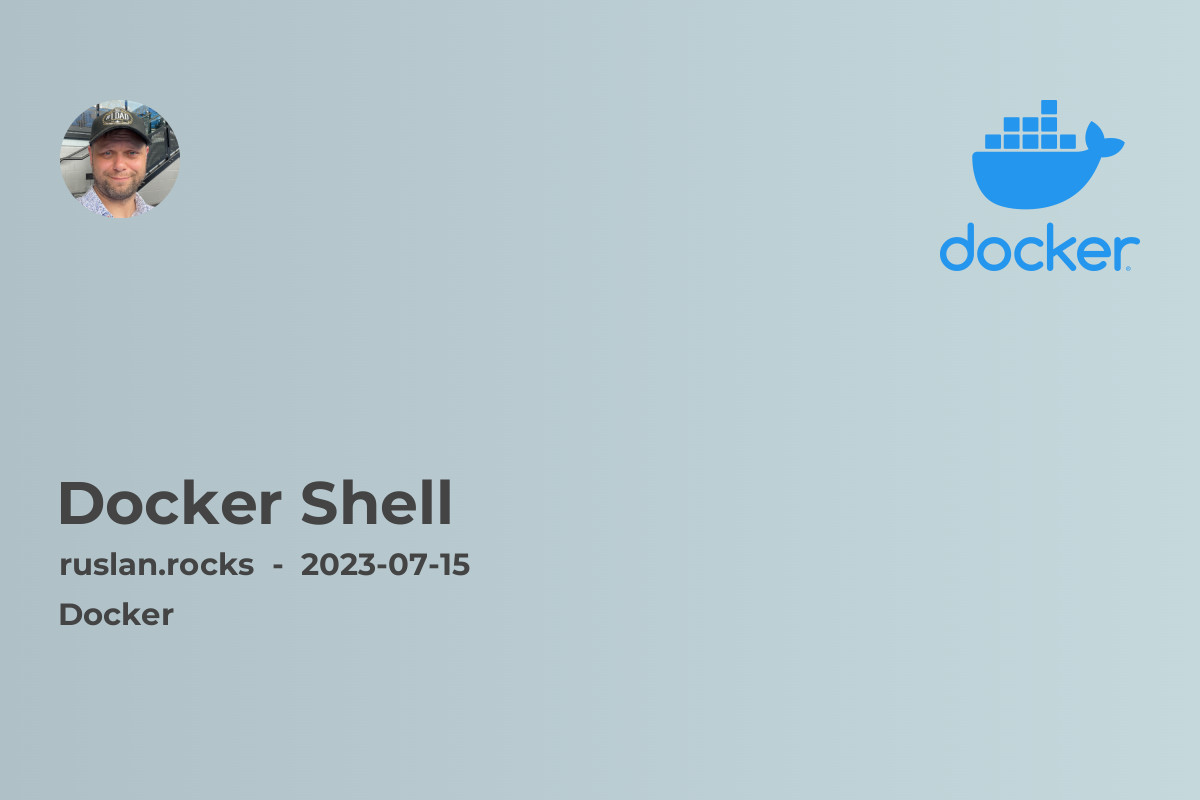- What is Docker Shell?
- Docker Shell Installation
- Basic Docker Shell Commands
- Troubleshooting Docker Shell Issues
- Recommended Related Articles:
- Conclusion

What is Docker Shell?
The Docker shell, also known as the Docker command line interface (CLI), is a powerful tool that allows developers to interact with Docker containers and manage their lifecycle. It provides a set of commands that enable users to build, run, and manage Docker containers from the command line. By using the Docker shell, developers can automate the deployment and management of their applications in a containerized environment.
Docker Shell Installation
To use the Docker shell, you need to have Docker installed on your system. The Docker website provides detailed instructions on how to install Docker on various operating systems such as Mac, Windows, and Linux. Once Docker is installed, you can open the terminal and begin executing Docker commands using the Docker shell.
Recommended Related Articles:
Basic Docker Shell Commands
Let's start with some of the basic Docker shell commands that every developer should be familiar with:
1. docker pull
The docker pull command is used to download Docker images from a Docker repository. It retrieves the specified image from the repository and stores it locally on your system. To pull an image, you need to specify the image name and tag.
2. docker run
The docker run command is used to create and run a Docker container based on a specified image. It pulls the image from the repository (if not available locally) and starts a new container instance. You can also provide additional options to customize the container's behavior.
3. docker ps
The docker ps command is used to list all the running containers on your system. It provides information such as the container ID, image, status, and other details for each running container. This command is handy when you want to check the status of your containers.
4. docker stop
The docker stop command is used to stop a running container. It sends a termination signal to the container, allowing it to gracefully shut down. You need to specify the container ID or name to stop a specific container.
Troubleshooting Docker Shell Issues
Sometimes, you may encounter issues while working with the Docker shell. Here are some common problems and their solutions:
1. Error: bash: docker: command not found
If you receive the error message "bash: docker: command not found," it means that the Docker shell is not installed or not properly configured on your system. To fix this issue, you need to install Docker using the appropriate installation instructions for your operating system.
2. Error: ZSH: command not found: docker
If you are using the ZSH shell and encounter the error "ZSH: command not found: docker," it means that the Docker shell is not recognized by your ZSH configuration. To resolve this issue, you can add the Docker executable path to your ZSH configuration file.
3. Error: Docker command not found on Mac
If you are using a Mac and encounter the error "Docker command not found," you may need to check if Docker is properly installed and configured. You can verify the installation by running the docker version command in the terminal.
4. Error: Is the Docker Daemon Running on MacOS?
If you receive the error message "Is the Docker Daemon Running on MacOS?" it means that the Docker daemon, which is responsible for managing Docker containers, is not running. You can start the Docker daemon by using the Docker application or running the dockerd command in the terminal.
Recommended Related Articles:
- Docker Install Mac
- Docker Install Ubuntu
- Docker Compose Is Not A Docker Command
- Docker Logs Last 100 Lines
- Docker Run Bash
Conclusion
In this article, we explored the Docker shell and learned how to use the Docker command line interface (CLI) to interact with Docker containers. We discussed the installation process of Docker, basic Docker shell commands, and troubleshooting common issues related to the Docker shell. By mastering the Docker shell, developers can efficiently manage their containerized applications and streamline their development workflow. So go ahead and give the Docker shell a try, and take your containerized applications to the next level!
Note: For more in-depth information about Docker, Docker images, Docker repositories, and other related topics, check out the recommended related articles provided above.
